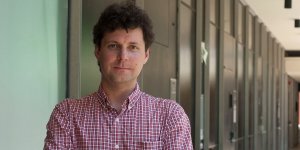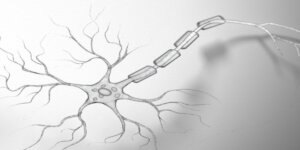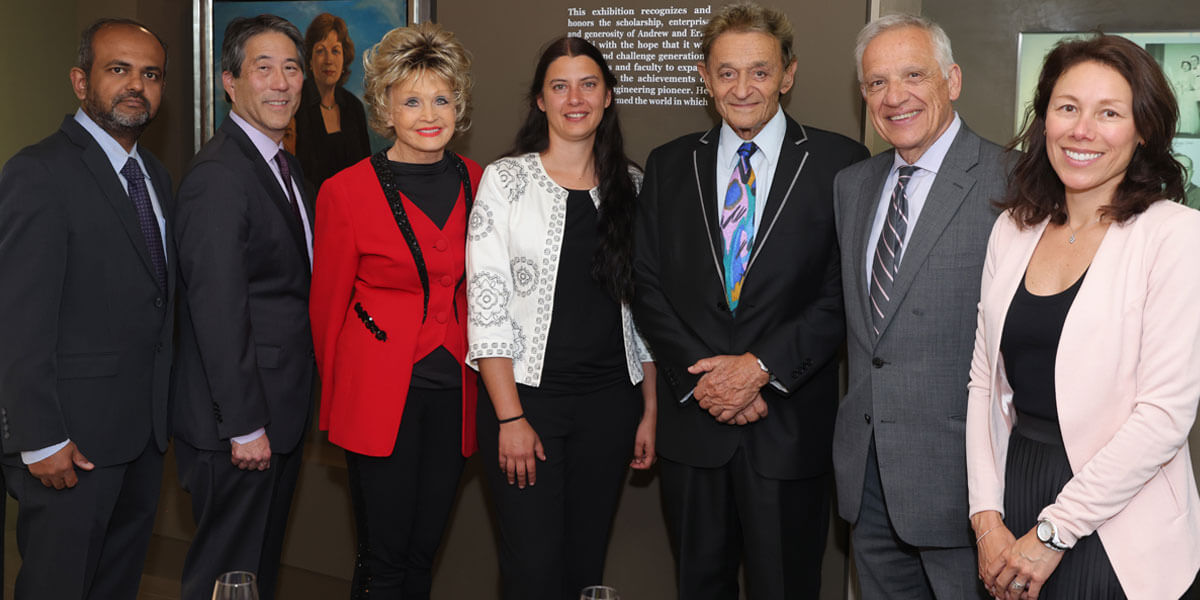
Pictured at Dilkina’s installation ceremony on May 3 (left – right): Gaurav S. Sukhatme, Rod Nakamoyo, Charlotte Ginsburg, Bistra Dilkina, Allen Ginsburg, Yannis Yortsos and Kaci Silverman. Photo: Greg Grudt/Steve Cohn Photography.
USC President Carol Folt praised Bistra Dilkina, an associate professor of computer science, as a “researcher who is consistently breaking new ground” at Dilkina’s installation as the inaugural holder of the Dr. Allen and Charlotte Ginsburg Early Career Chair, May 3.
The announcement comes a year after the physical groundbreaking of a new computer science building, the Dr. Allen and Charlotte Ginsburg Human-Centered Computation Hall, a new home for computer and data science at USC named in honor of its principal donors. Research and teaching in the new building will focus on advancing computer science’s critical role in improving and benefiting society through areas including artificial intelligence, machine learning and robotics.
Congratulating Dilkina and expressing gratitude for the Ginsburgs’ generosity, President Folt called the event a celebration “of a young Viterbi scientist who is changing how the world sees and uses artificial intelligence” and “a visionary couple whose philanthropy is shaping a future where computer science powers life-saving – and life-lifting – solutions for humanity.”
The human factor
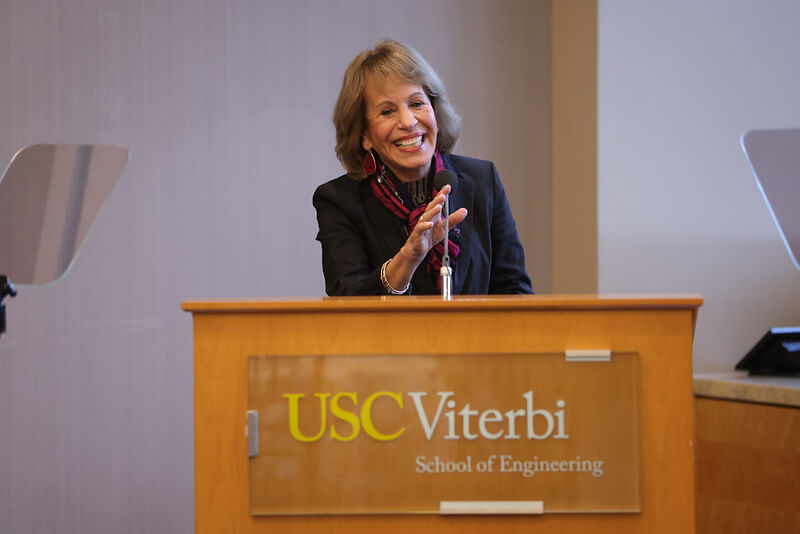
During her address, USC President Carol Folt referred to Dilkina as “a young Viterbi scientist who is changing how the world sees and uses artificial intelligence.” Photo: Greg Grudt/Steve Cohn Photography.
Folt emphasized the “human factor” in Dilkina’s work, which tackles real-world problems spanning applications in sustainability, ecology, disaster preparedness and substance abuse prevention.
In their address, the Ginsburgs noted Dilkina’s history “with solving real-world, large-scale problems, especially ones that arise in sustainability areas such as urban planning,” and referred to her as the “perfect heroic engineer.”
“At USC, early career chair appointments are special because of what they represent: individuals who have already established themselves through their work and through their leadership, but who still have enormous potential for even more greatness,” said Allen Ginsburg.
Dean Yannis Yortsos agreed, referring to Dilkina as “one of our most talented rising star faculty.”
“Holding such a professorship is considered to be an honor in the academic world, and the university can use them to reward its best faculty or to recruit top professors from other institutions,” said Yortsos.
AI for social good
Dilkina’s work focuses on combining mathematical optimization and machine learning to help select the best option from a set of alternatives, which is crucial in solving complex problems with limited resources.
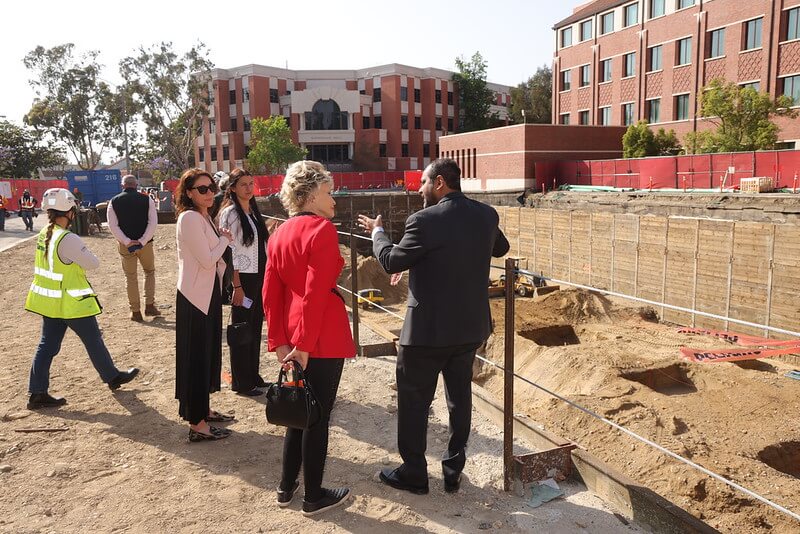
Construction is underway of the Dr. Allen and Charlotte Ginsburg Human-Centered Computation Hall, a new home for computer and data science. Photo: Greg Grudt/Steve Cohn Photography.
In partnership with the world’s leading wildlife conservation groups, Dilkina and her graduate students are developing algorithms to help address several pressing environmental needs, from designing optimal wildlife reserves, to fighting wildlife crime, and preventing the spread of invasive species.
This includes a National Science Foundation-funded project with collaborators around the world to thwart illicit animal trafficking. The researchers aim to create data-rich models identifying major illegal trafficking routes to increase the likelihood of effective intervention.
Since 2020, Dilkina has served as co-director of the Center for Artificial Intelligence in Society (CAIS), one of the first centers on AI for social good and the only academic center that is equal parts computer science and social work.
“This kind of work requires truly interdisciplinary collaborations and close engagement of stakeholders and community organization,” said Dilkina. “Here at USC, I have found the most thriving, supportive and inspiring environment to do it.”
A dedicated mentor
In addition to her research, Dilkina is a keen mentor, who propagates her passion to her students. In her undergraduate class focusing AI for sustainable development, she engages students in a deep dive into the role that AI can play in energy, environment, education, and public health.
Meanwhile, her graduate students develop cutting-edge AI methods to solve problems spanning topics such as using satellite imagery to classify land cover, helping decide where to perform prescribed burns to minimize potential wildfires, and developing AI methods to help make Los Angeles infrastructure more resilient to natural disasters.
“It is my absolute pleasure and great honor to be the inaugural recipient of the Dr. Allen and Charlotte Ginsburg Early Career chair in computer science,” said Dilkina.
“Allen and Charlotte Ginsburg’s vision for human-centered computing and their appreciation for computer science as a driving force for innovation and for social impact resonate so deeply with my research priorities and aspirations.”
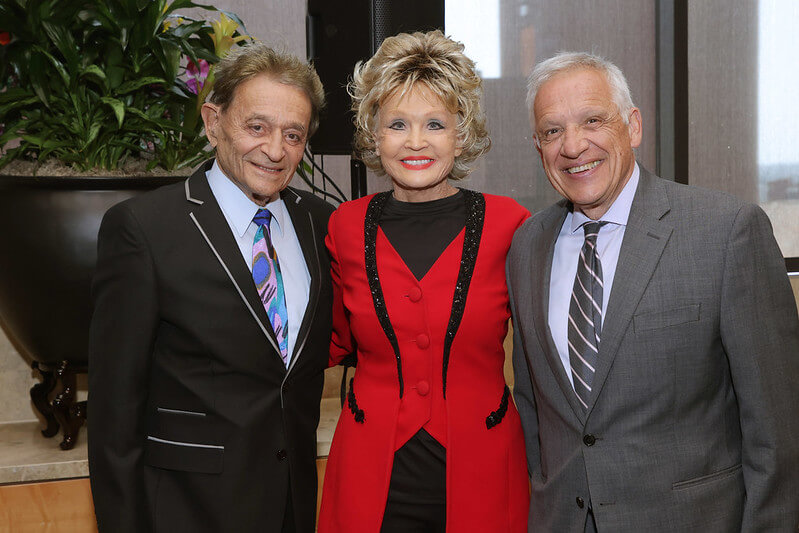
Allen and Charlotte Ginsburg and USC Viterbi School of Engineering Dean Yannis Yortsos. Photo: Greg Grudt/Steve Cohn Photography.
Philanthropists with big hearts
Allen Ginsburg is a retired ophthalmologist with a focus on entrepreneurship, real estate and philanthropy. He is a self-described futurist who is deeply concerned with issues concerning the planet and universe.
Charlotte Ginsburg’s interests including performing arts, dance, theater, and costume and fashion design. The couple also supports programs that promote environmental sustainability. The longtime Southern California residents live in Palos Verdes.
A few years ago, their generosity established USC’s Ginsburg Institute for Biomedical Therapeutics, where scientists collaborate on research into neurosensory disorders. Paying tribute to the Ginsburgs’ incredible dedication to USC, Folt said, “Viterbi needs philanthropists with big hearts. And we’ve found that in Charlotte and Allen Ginsburg.”
A heroic engineer
Dilkina earned her bachelor’s degree from Simon Fraser University, and her master’s and doctoral degrees from Cornell University. She joined USC in January 2018 from the Georgia Institute of Technology, where she served as an assistant professor, developing optimization techniques to identify cost-effective biodiversity corridors, connecting isolated populations of rare, threatened and endangered species living in protected areas.
Since then, she has published numerous articles on illegal wildlife poaching prediction, land cover mapping, species distribution models and disaster resilience planning.
In addition to the Dr. Allen and Charlotte Ginsburg Early Career Chair, Dilkina’s research has garnered broad recognition, including the Okawa Foundation Research Award (2019), the UN Data for Climate Action Challenge Award in Climate Adaptation for her work on predicting and alleviating road flooding (2017), and numerous awards from KDD Applied Data Science, Raytheon and AAAI, among others.
Published on June 20th, 2022
Last updated on May 16th, 2024





